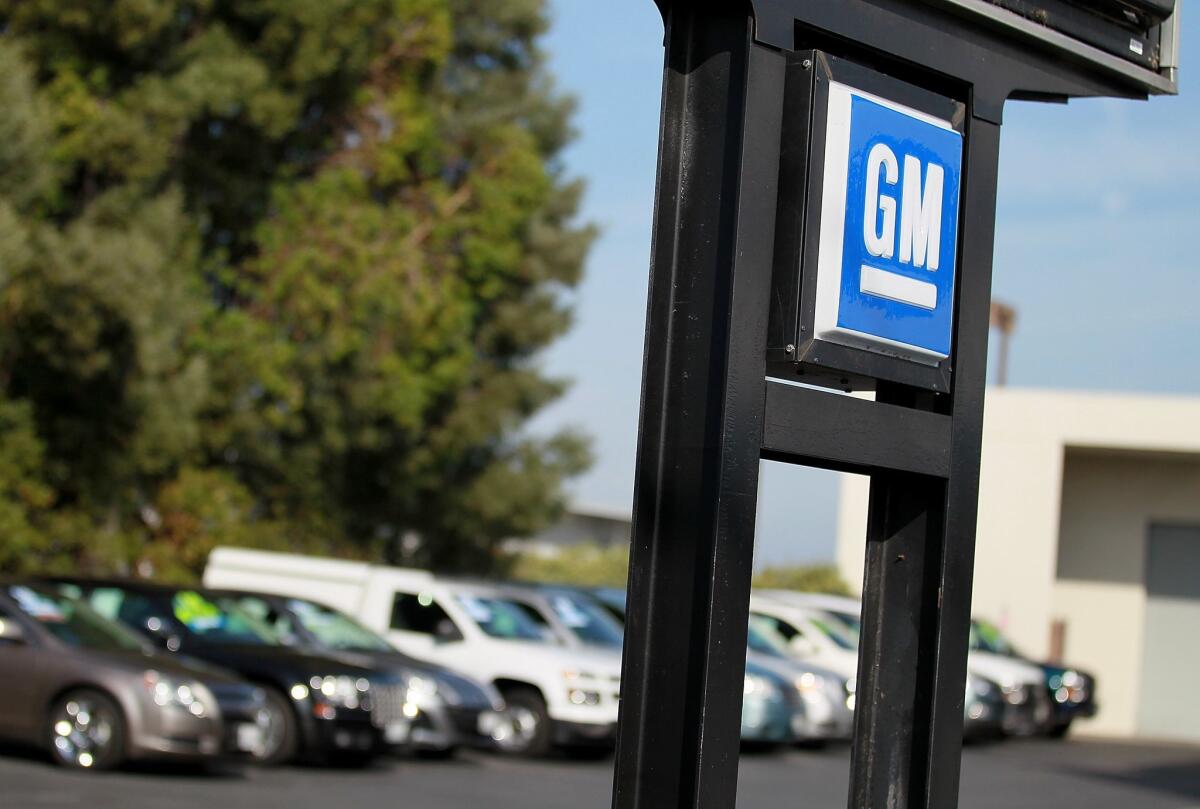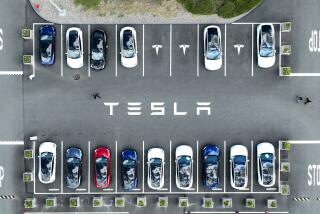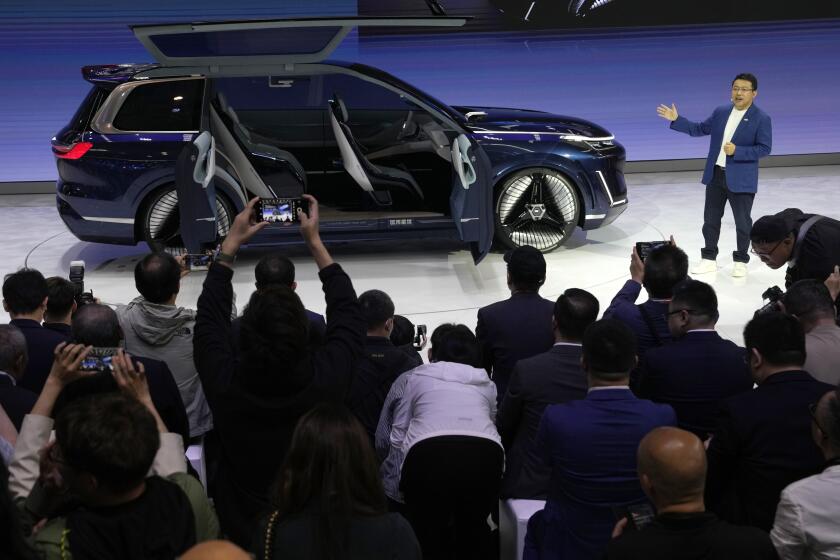Domestic car sales for 2015 poised to be best on record

Vehicle sales for 2015 are expected to set a new U.S. record, as passenger car purchases rose above the 17.5 million mark/. In this photo, the General Motors logo is displayed at Boardwalk Chevrolet in Redwood City, California.
Despite pollution-spewing Volkswagens, exploding Takata airbags and failing GM ignition switches, domestic car sales for 2015 appear poised to be the best in U.S. history.
Industry experts predict, based on year-to-date sales and projections for December, that the year’s total sales will top 17.4 million vehicles, beating the previous high sales mark set in the year 2000.
“The economy is strong, interest rates are low, and fuel prices are at the lowest rate since 2009,” said Stacey Doyle, senior auto industry analyst for Truecar. “Consumers feel more confident about bigger-ticket purchases.”
See more of our top stories on Facebook >>
November’s numbers were strong, continuing steady growth since mid-year. Total passenger and light truck sales for the first 11 months of 2015 totaled over 15 million units, up 5.5% from the first 11 months of 2014.
Fiat-Chrysler sales were up 3% for the month, while GM sales rose 1.5%. Ford overall sales were flat, but F-Series truck sales rose 10%. Nissan was up 3.8%, and Toyota climbed 3.4%.
Niche nameplates Land Rover, Scion, Volvo and Alfa Romeo did even better, though their numbers were smaller.
“The auto industry is close to having an all-time best-ever year,” said Toyota vice president and general manager Bill Fay. “We will likely end the year exceeding our expectations with about 2.44 million sales.”
The big numbers have been paralleled by big auto recalls. Volkswagen admitted this fall that it had installed so-called “defeat devices” in millions of its diesel automobiles, in an attempt to evade emissions standards.
That company’s sales for November were off 25%, largely due to suspended sales of popular diesel vehicles.
See the most-read stories this hour >>
But General Motors’ sales for the year have been robust, despite revelations that the Detroit giant overlooked persistent problems with faulty ignition switches on many older models — problems tied to dozens of auto fatalities.
Sales at Toyota and Honda have apparently not been harmed by news reports of deaths tied to exploding airbags installed in those automakers’ cars and vehicles made by other manufacturers. Those airbag problems have been blamed in multiple deaths.
Doyle and others said larger economic forces are urging new car sales up. Gas prices, while above 2000 levels, have remained relatively low and relatively stable. Unemployment rates, in addition to interest rates, are also low.
“The labor market and the interest rates create a favorable climate for car purchases,” said Ford’s U.S. sales analyst Erich Merkle.
Another key factor, Merkle said, is the relatively old population of vehicles currently in use. In 2000, the average age of cars on U.S. roads was just under 10 years. Now, Merkle’s research indicates, it’s closer to 12 years old.
That’s partly because cars are better built and expected to last longer. But it’s also because consumers, wary since the industry bottomed out in 2008 and 2009, have been reluctant to commit their money to such an expensive purchase.
“The average age of the vehicles creates an environment where more people are ready to buy new cars,” Merkle said.
One number that has not gone up: Vehicle density, or the ratio of vehicles to drivers. Merkle said that in 2000, there were just over 1,000 vehicles in use for every 1,000 people of driving age. That number has dropped to about 965 vehicles for every American of driving age.
“Sales have gone up, but vehicle density hasn’t,” Merkle said.
Doyle said there is also reason to believe next year’s numbers may set another record.
“We have a prediction of 17.7 million vehicles for 2016,” the Truecar analyst said. “We expect the momentum to grow.”
ALSO
Japanese cars do best in insurance industry safety rankings
Self-driving cars must have driver behind the wheel, California says
After San Bernardino shootings, Disneyland and Universal Studios step up security







